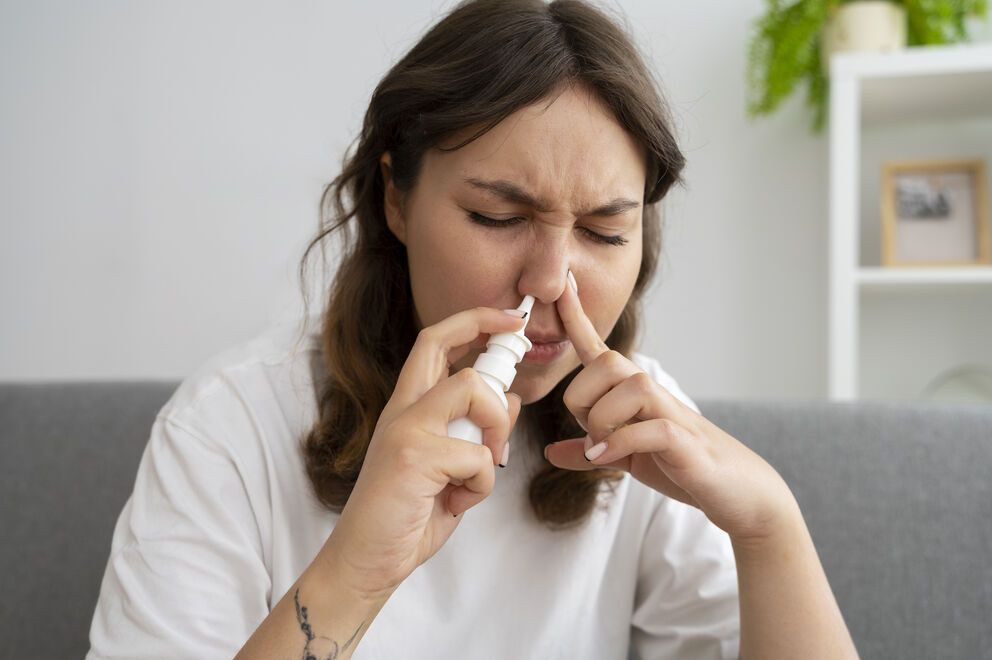Nasal Polyps Treatment Guide: Comprehensive Strategies for Managing and Preventing Nasal Polyps
They are typically teardrop-shaped and may vary in size. Smaller polyps might not cause symptoms, while larger ones can block nasal passages, leading to congestion, reduced sense of smell, and recurrent sinus infections.

Why nasal polyps matter in healthcare today
Nasal polyps are a common condition, affecting both adults and, less frequently, children. Their impact on quality of life can be significant:
-
Breathing difficulties due to blocked nasal passages
-
Reduced sense of smell or taste
-
Frequent sinus infections and inflammation
-
Sleep disturbances such as snoring or sleep apnea
-
Persistent nasal congestion
Who is most affected?
-
People with chronic rhinosinusitis
-
Individuals with asthma or aspirin sensitivity
-
Those with allergies or immune-related conditions
-
Adults over the age of 40 (more common in this group)
Problems solved by treatment:
-
Restoring clear nasal airflow
-
Reducing frequency of sinus infections
-
Improving sleep and overall breathing
-
Enhancing smell and taste sensations
-
Preventing recurrence of polyps
Recent updates in nasal polyp treatment (2024–2025)
The past year has brought advancements in treatment methods, with a focus on reducing recurrence and improving patient comfort:
| Update | Description |
|---|---|
| Biologic therapies | Drugs like dupilumab (approved in several countries) target specific immune pathways to reduce polyp size and inflammation. |
| Minimally invasive surgery | Endoscopic sinus surgery techniques now cause less tissue damage, reducing recovery time. |
| Personalized treatment plans | Genetic and allergy testing help customize treatment for better outcomes. |
| Improved nasal steroid delivery | New nasal sprays and irrigation devices allow deeper penetration into the sinus cavities. |
| Combination therapy | Use of biologics alongside topical steroids has shown better long-term control. |
In 2025, several ENT (ear, nose, and throat) specialists began adopting hybrid treatment models that combine medical management with early intervention surgery for chronic cases, aiming to minimize repeat surgeries.
How laws and policies influence nasal polyp care
Nasal polyp treatment is shaped by national healthcare systems, insurance coverage policies, and pharmaceutical regulations.
| Policy/Regulation | Region | Impact on Treatment |
|---|---|---|
| NHS Guidelines | UK | Recommends initial medical treatment with topical steroids before considering surgery. |
| FDA Approvals | USA | Approves biologics like dupilumab for use in chronic rhinosinusitis with nasal polyps. |
| Health Insurance Coverage | Global | Many insurers require evidence of failed medical therapy before approving surgery. |
| National Allergy and Asthma Programs | Various countries | Promote early allergy management to reduce nasal inflammation and polyp formation. |
In many regions, biologic treatments may require pre-authorization due to their high cost, and patients may need documentation showing other treatments were ineffective.
Useful tools and resources for managing nasal polyps
Medical Management Tools:
-
Nasal irrigation systems (e.g., neti pots, saline rinse bottles)
-
Digital medication reminders (apps like Medisafe)
-
Symptom tracking apps (e.g., MySinusitisCoach)
Educational Websites:
-
American Academy of Otolaryngology – Guidelines and patient resources
-
Mayo Clinic – Condition overviews and care tips
-
National Health Service (NHS) – Treatment and prevention guidance
Healthcare Services:
-
ENT clinics for diagnosis and surgical treatment
-
Allergy testing centers for identifying triggers
-
Pulmonology departments for patients with asthma-related polyps
Self-Care Aids:
-
Humidifiers to maintain nasal moisture
-
HEPA air purifiers to reduce airborne allergens
-
Anti-inflammatory diets recommended by healthcare professionals
Frequently Asked Questions (FAQs)
1. Can nasal polyps go away on their own?
Small polyps may shrink with medication, but they rarely disappear without treatment. Persistent or large polyps usually require medical management or surgery.
2. What is the most common treatment for nasal polyps?
Topical nasal corticosteroids are typically the first-line treatment. If symptoms persist, oral steroids, biologics, or surgery may be considered.
3. How can I prevent nasal polyps from coming back?
Managing underlying conditions like allergies or asthma, using saline rinses, and following prescribed nasal spray routines can reduce recurrence risk.
4. Is surgery a permanent cure?
Surgery can remove existing polyps, but it does not prevent new ones from forming. Post-surgical maintenance with medications is essential.
5. Are nasal polyps dangerous?
They are generally not dangerous or cancerous, but they can cause chronic symptoms and complications like frequent sinus infections if left untreated.
Summary table: Medical vs. surgical treatment
| Approach | Description | Pros | Cons |
|---|---|---|---|
| Medical | Steroid sprays, oral steroids, biologics | Non-invasive, reduces inflammation, can shrink polyps | May not fully remove large polyps, recurrence possible |
| Surgical | Endoscopic sinus surgery | Immediate removal of obstructions, improves breathing | Requires recovery, risk of recurrence |
Final thoughts
Nasal polyps, while benign, can have a significant impact on daily life. Understanding the available treatments, from medical management to surgery, helps patients and caregivers make informed choices. Advances in biologic therapies, improved surgical techniques, and personalized care are making treatment more effective than ever.
Long-term success depends on ongoing management—addressing underlying inflammation, following treatment plans, and adopting preventive measures. With the right approach, many people with nasal polyps can enjoy improved breathing, fewer infections, and a better quality of life.
